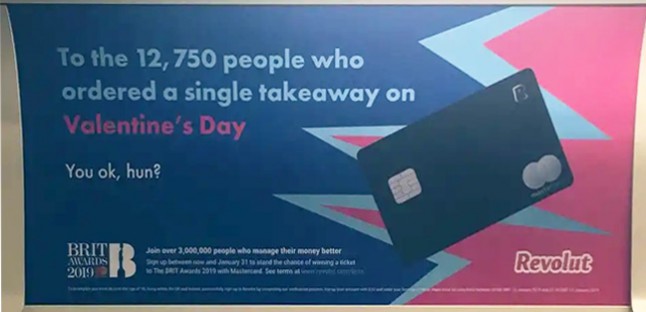Latest posts
A masterclass in creating value
What’s going on at parkrun?
Virtue-signalling all the way to the bank
Bud Light: brand purpose or virtue-signalling?
The Coddling of the American Mind, by Greg Lukianoff and Jonathan Haidt
Belonging, by Owen Eastwood
Such a simple thing
The Long Win, and The Scout Mindset
The Cult of We by Eliot Brown and Maureen Farrell
Coffee and covid modelling
By theme
Marketing strategy
Insight & metrics
Innovation & inspiration
Brand & positioning
Marketing communications
Business purpose
Leadership
By industry sector
Financial services
Retail
FMCG
Technology & start-ups
Consumer services
Business to business
Other sectors
By type
Books
Comment
Quotes
Thought leadership
The old saw “All publicity is good publicity” is being sorely tested. In the first month of 2019 we’ve had at least three major incidents. First there was vegan-sausage-roll-gate, in which Greggs caused grave offence to meat eaters. Well, Piers Morgan. Then men worldwide were outraged by Gillette telling them to show their feelings more, but not the mean ones. Today’s hurt is brought to you by a “digital banking alternative” called Revolut. Their topical Valentine’s Day advert reveals that some of their customers ordered takeaway pizza for one on 14 February last year, and asks, “You ok, hun?” While you may see this as a nothing-burger, apparently it’s single-shaming. Which is now a thing, it seems. After the usual hue and cry, Revolut have apologised. “We did not pay enough attention to the copy and the tone,” said Chad West, Revolut’s head of global marketing.
Did these brands do well, by generating a ton of media coverage and awareness they didn’t pay for? Or did they do badly, by upsetting people and making themselves unpopular? Let’s evaluate what they are accused of, and whether it’s good or bad for business.
Greggs is the easy one. A novel and harmless product which fits easily into their product portfolio was criticised by a controversial media figure with 6.5 million followers on Twitter. This new product is a bit surprising for a traditional bakery chain, so it may prompt some people who don’t shop there to think maybe there’s more to Gregg’s than they thought. People who like Greggs but dislike vegan options can ignore the offending item. Everyone now knows it’s there. Goal!
Gillette is more problematic because it appears to be having a go at its own customers. That’s if you, a man, are offended by the suggestion you shouldn’t shout at people. It seems many were. One could argue this entirely vindicates Gillette’s decision, proof that the message is needed. The issue here is, I suspect, that people are split on whether it’s Gillette’s place to be the messenger. Having a social purpose is fashionable for brands. At best it wins them support, at worst it attracts cynicism. If Gillette stick with it, in time it will seem a lot less controversial. If they drop it, we’ll forget pretty fast. Either way it’s not going to make that much difference to how many razor blades they sell.
Revolut probably thought they were just having a little fun, while showing how a tech business can do clever things with its data. Is anyone single really harmed or even offended? There is a problem, though, and it’s nothing to do with how you spend Valentine’s Day. Good marketers try hard to understand the needs, preferences and behaviours of their customers, in order to develop better products and services, and to communicate more effectively. Mostly customers are happy with this. We want relevant stuff, which requires some analysis and sorting. But this is too visible. If they can analyse this data, what else are they doing with it? Spying on my habits? Telling other people? Financial services is one of those sectors, along with healthcare and media, that people are particularly sensitive about. Revolut should have thought of that. This advertisement offers nothing useful to anyone, so the intrusion is hard to justify. In fact it’s not even aimed at current customers. It’s to recruit new ones. No matter whether this data is real or made up. They are having a laugh at their own customers’ expense, for their own benefit. Own goal.
Footnote: Remember the row about the Beach Body Ready ad on the Tube? Can you name the brand? While the original ad was banned from the London Underground in 2015 after hundreds of complaints, it was mimicked by a plus size clothing brand only last year. A form of success, perhaps.
More on brands doing “purpose”: a perspective on that Nike advert, and on the notorious Pepsi Kendall Jenner spot
Latest posts
A masterclass in creating value
What’s going on at parkrun?
Virtue-signalling all the way to the bank
Bud Light: brand purpose or virtue-signalling?
The Coddling of the American Mind, by Greg Lukianoff and Jonathan Haidt
Belonging, by Owen Eastwood
Such a simple thing
The Long Win, and The Scout Mindset
The Cult of We by Eliot Brown and Maureen Farrell
Coffee and covid modelling
By theme
Marketing strategy
Insight & metrics
Innovation & inspiration
Brand & positioning
Marketing communications
Business purpose
Leadership
By industry sector
Financial services
Retail
FMCG
Technology & start-ups
Consumer services
Business to business
Other sectors
By type
Books
Comment
Quotes
Thought leadership
